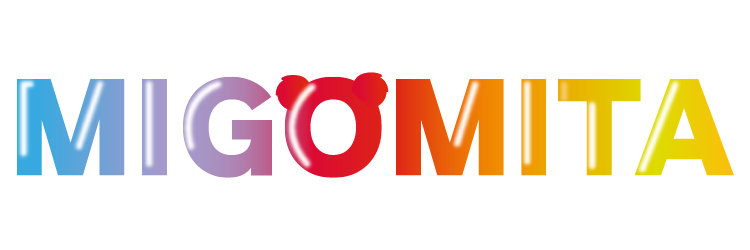Building upon the foundational understanding of how technology ensures fairness in game outcomes, it is crucial to explore how emerging innovations like blockchain are transforming this landscape. As gaming evolves, integrating blockchain technology offers unprecedented transparency, security, and trustworthiness, addressing many longstanding challenges in maintaining fairness. For a comprehensive overview of general fairness mechanisms, refer to How Technology Ensures Fairness in Game Outcomes.
1. Blockchain as a Transparent Ledger for Game Outcomes
One of blockchain’s core strengths lies in its ability to serve as a immutable and transparent ledger. In gaming, this means that every result—be it a spin of a roulette wheel, a card shuffle, or a match outcome—is recorded on a blockchain network that is publicly accessible and tamper-proof. This transparency allows players and developers to verify game results independently, significantly reducing the risk of outcome manipulation.
For example, platforms like FunFair utilize blockchain to log every game transaction instantly, enabling players to audit results at any time. This real-time verification process ensures that results are not altered post-game, fostering trust and fairness.
The immutability of blockchain data—once recorded, it cannot be changed—acts as a digital safeguard against cheating, ensuring that outcomes remain genuine and verifiable long after the game concludes.
2. Decentralization and Trustless Systems in Gaming
Decentralization is a fundamental principle of blockchain technology, meaning that no single entity has control over the entire network. In gaming, this decentralization eradicates the need for third-party authorities to verify results or manage fairness, shifting trust from centralized institutions to the collective consensus of network participants.
Trustless protocols—protocols that do not require players to trust any individual or organization—are particularly impactful. They use cryptographic proofs and consensus algorithms, such as Proof of Stake or Proof of Work, to validate game results without human oversight. This approach significantly enhances confidence among players, especially in competitive environments where fairness is paramount.
An illustrative case is Chiliz, which leverages decentralized blockchain to ensure that in-game assets and scores are tamper-proof, thereby upholding fairness and transparency across diverse gaming ecosystems.
3. Smart Contracts: Automating Fair Play and Rewards
Smart contracts—self-executing agreements with terms directly written into code—are revolutionizing fairness in gaming. These digital contracts automatically enforce rules, payouts, and penalties without human intervention, ensuring that all parties adhere to predefined conditions.
For instance, in blockchain-based poker platforms, smart contracts automatically distribute winnings based on game results verified on the blockchain. This eliminates disputes over payouts and ensures that rewards are distributed fairly and promptly.
Moreover, smart contracts facilitate transparent rule enforcement, where players can verify that game mechanics operate as intended, reducing the influence of potential biases or manipulation.
4. Addressing Common Gaming Fairness Challenges with Blockchain
Blockchain technology directly tackles several persistent issues in gaming fairness. These include:
- Cheating and outcome manipulation: Immutable records prevent tampering with game results post-play.
- Fraud and counterfeit digital assets: Blockchain verifies ownership and authenticity of in-game assets, combating duplication and theft.
- Fair ownership and trading of assets: Transparent transfer histories foster trust in asset trading platforms, reducing disputes.
For example, Enjin uses blockchain to authenticate in-game collectibles, ensuring that players own genuine items and can trade securely across platforms.
5. Non-Obvious Benefits of Blockchain in Gaming Fairness
Beyond the immediate technical advantages, blockchain introduces several subtle yet impactful benefits that enhance fairness and player experience:
- Provenance and authenticity of in-game assets: Blockchain provides a transparent history, assuring players of asset legitimacy.
- Cross-platform interoperability: Blockchain standards enable seamless asset transfer and gameplay fairness across different gaming environments.
- Player-driven governance: Token-based voting mechanisms empower players to influence game development and rule adjustments, fostering a fair and democratic ecosystem.
Such features cultivate a more engaged and trustworthy community, where fairness extends beyond mere game mechanics to governance and asset authenticity.
6. Limitations and Challenges of Blockchain Adoption in Gaming
Despite its promising potential, blockchain integration faces notable hurdles:
- Technical barriers: Scalability issues, transaction latency, and high energy consumption can hinder widespread adoption.
- Regulatory and legal considerations: Varying laws around digital assets and data privacy complicate implementation.
- Balancing transparency with privacy: While transparency is vital, sensitive player data must be protected, requiring innovative solutions.
Addressing these challenges is essential for blockchain to reach its full potential in fostering fair gaming environments.
7. Future Perspectives: Blockchain’s Evolving Role in Fair Gaming Ecosystems
Emerging innovations promise to further embed blockchain within gaming fairness frameworks. Layer 2 solutions and sidechains aim to improve scalability and transaction speeds, making blockchain more practical for mainstream gaming. Additionally, integrating blockchain with artificial intelligence opens avenues for real-time fairness analysis and adaptive game balancing.
Looking ahead, the vision is a fully transparent, player-centric gaming environment where trust is built into the core infrastructure, and players have meaningful control over their assets and experiences.
8. Connecting Blockchain Innovation to Broader Fairness Technologies
While blockchain offers robust solutions, it functions best when combined with other fairness mechanisms. For example, traditional RNG (random number generators) can be augmented with blockchain-based result verification, creating a layered defense against manipulation.
Integrating multiple technologies—such as cryptographic proofs, secure hardware, and player feedback systems—ensures a comprehensive approach to fairness. This synergy enhances overall trust and mitigates individual technology limitations.
Ultimately, blockchain acts as a transformative tool that, when combined thoughtfully with existing systems, can uphold the highest standards of fairness and integrity in gaming.
